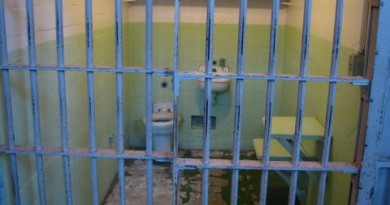Shavuot in Jerusalem
 If you haven't experienced Shavuot in Jerusalem, you've never experienced Shavuot.
If you haven't experienced Shavuot in Jerusalem, you've never experienced Shavuot.
If you live anywhere else, and want to experience a holiday that is celebrated in Jerusalem in a fashion unlike anywhere else, Shavuot is the holiday.
The Torah commands us to gather in Jerusalem for three holidays in particular — the "Shalosh Regalim," or Three Pilgramage Festivals. Passover, Shavuot (the feast of weeks) and Sukkot (the feast of tabernacles). Why do I single out Shavuot?
Passover is very much a family holiday, ideally celebrated at home with friends and family — it's really not that different here, other than you can find a lot of kosher restaurants open during chol hamoed. Sukkot, I will admit, is also special here — the weather is generally pleasant, and it's cool to see sukkot all over town. But nothing, in my opinion, compares with Shavuot.
Shavuot is the holiday when we celebrate the receiving of the Torah (especially the Ten Commandments) on Mt. Sinai. The Torah says that the giving of the the Torah was accompanied by thunder and lightning — and midrash says that's because our ancestors slept in late on the big day and God had to wake them up. So to do a "tikkun," a healing or repair for that lack of enthusiasm over 3,000 years ago, we stay up all night studying Torah, and then recite the Ten Commandments at the earliest hour, at dawn.
Most congregations in the US don't manage to stay up all night. They'll do some learning — maybe until midnight — and then gather again at the usual time for morning services at 9 or so and read the Ten Commandments. The six years I served as a congregational rabbi in the US and Canada, I always tried to do the all night study session, and more often than not we had dwindled to less than a minyan (ten people) by dawn.
In Jerusalem the experience is completely different. In every neighborhood you'll find study sessions; at the major learning institutes you'll find world class scholars teaching all night long. There are people out walking the streets from one learning session to another all night long. At about 4am if you didn't know where the Kotel (the Western Wall) was, you could find it by just following the stream of people heading that direction. It's absolutely eery. And very exciting, to be gathering at the site of the Temple, on a pilgramage festival, to receive the Torah.
This year I studied at the Hartman Institute, Pardes, and the Conservative Yeshiva. At Hartman I heard Rabbi David Hartman share some fascinating insights about what's wrong with how much of the Jewish world treats the "other" these days (other including anyone not like them — women, non-Jews, Jews with opinions that differ from theirs). He accused the Charedi, who want to seclude themselves away from the world, live in a separate neighborhood with no contact with outsiders, who consider Conservative and Reform as less than Jewish, "Reform" Jews, because that is not what Judaism is about they have reformed themselves away from the essence of Judaism and have kept the window dressing. We're supposed to bring a message of hope and reconciliation to the world, not a message of fear, not a message of retreat, not an identity based on the Holocaust.
At Pardes I heard Judy Klitsner talk about contrasting views of women in the Tanakh (Hebrew Bible). She maintains that often stories should be read in comparison, and that sometimes a later story will be subversive to the image you get from an earlier story. The prophetess Deborah certainly turns a lot of the assumptions about women upside down!
At the Conservative Yeshiva I participated in a group studying midrashim on revelation. And at about 4:30 in the morning, I joined the sea of people heading for the Kotel. At 5am we had a few hundred people at the "Masorti (Conservative) Kotel" at Robinson's Arch, and there were a few thousand people fifty meters away from us at the Western Wall Plaza. After staying up all night, you are automatically in a state of "altered consciousness." Saying our prayers in the pleasant cool temperature as star light turned to sunlight, with the sounds of not just our group but other groups singing and praying, was very powerful.
Shavuot is my favorite holiday because it's a celebration of learning. On Simchat Torah we rejoice just with the Torah itself, we rejoice that God gave us the gift of the Torah. But Shavuot is about learning, and celebrating learning, and learning is what leads to growth and progress.
Another fun image of Shavuot in Jerusalem comes from my wife, who went to the "shuk," the outdoor market at Mahane Yehuda, to buy supplies before the holiday started. In particular there is a kosher gourmet wine and cheese shop in the shuk, and she said it was jammed — we customarily eat dairy foods on Shavuot, so it was probably their busiest day of the year. Where else can you find some good kosher port to go with your cheese on Shavuot?
Next year in Jerusalem…


In my community in NJ we have an interesting expression of achdut – most people who stay up remain at their own synagogues, but the rabbis walk from shul to shul, giving the same 40 – 50 minute drasha at each location. This means the rabbeim only have to prepare one speech, and the congregants get to hear from rabbis they don’t normally hear.
As our rabbis age, we are seeing them restrict this to about half of town each and we’re hearing more from educated laypeople.